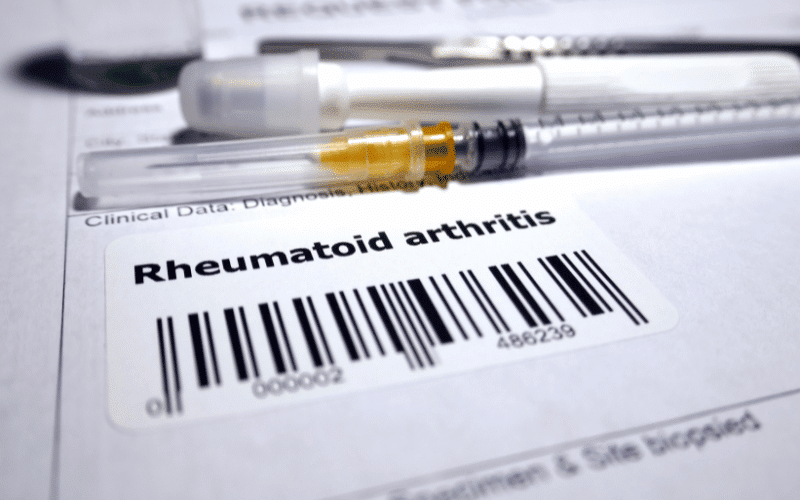FAQs: Frequently Asked Questions About Rheumatoid Arthritis Causes
Advertisements
 Advertisements
Advertisements
1. Can rheumatoid arthritis be prevented?
While there is no surefire way to prevent rheumatoid arthritis, addressing modifiable risk factors, such as maintaining a healthy weight, exercising regularly, eating a balanced diet, managing stress, and quitting smoking, can reduce the likelihood of developing the condition or help manage its symptoms in those already diagnosed.
2. Is rheumatoid arthritis hereditary?
There is a genetic component to rheumatoid arthritis, and individuals with a family history of the condition are more likely to develop RA themselves. However, genetics alone do not determine whether someone will develop RA; environmental and lifestyle factors also play a role in the disease’s onset.
3. Can diet help manage rheumatoid arthritis symptoms?
Yes, adopting a healthy diet rich in anti-inflammatory foods, such as fruits, vegetables, whole grains, and healthy fats, can help reduce inflammation in the body and may help prevent or manage RA symptoms. The Mediterranean diet is one example of a dietary pattern that may be beneficial for individuals with RA.
4. How does stress affect rheumatoid arthritis?
Chronic stress can lead to the release of stress hormones, such as cortisol, which can contribute to inflammation in the body. This increased inflammation can exacerbate RA symptoms or potentially trigger the onset of the disease in predisposed individuals. Managing stress through relaxation techniques, exercise, and a healthy lifestyle can help improve overall well-being and reduce the risk of developing RA.
5. Are there any environmental factors that can trigger rheumatoid arthritis?
Environmental factors, such as cigarette smoke and air pollution, have been linked to an increased risk of developing rheumatoid arthritis. These factors can cause inflammation in the body, which may contribute to the onset of RA or worsen existing symptoms in susceptible individuals. Minimizing exposure to these environmental triggers, when possible, may help reduce the risk of developing RA.
6. How does obesity contribute to rheumatoid arthritis development?
Obesity can contribute to rheumatoid arthritis development through several mechanisms. Excess body weight can place increased stress on the joints, leading to inflammation and pain.
Moreover, fat cells produce proteins called adipokines, which can contribute to inflammation in the body. Losing weight and maintaining a healthy weight can help reduce the risk of developing RA and improve symptoms in those already diagnosed with the condition.
7. Why are women more likely to develop rheumatoid arthritis than men?
Women are more likely to develop rheumatoid arthritis due to hormonal factors, particularly the female hormone estrogen. High levels of estrogen have been shown to promote inflammation, which can contribute to the onset of RA in predisposed individuals.
Additionally, fluctuations in estrogen levels, such as those experienced during pregnancy and menopause, have been linked to changes in RA symptoms. However, more research is needed to fully understand the relationship between hormonal imbalances and RA development.
8. Can infections cause rheumatoid arthritis?
Some researchers believe that certain bacteria or viruses may act as triggers for the autoimmune response seen in rheumatoid arthritis patients. For example, the bacteria Porphyromonas gingivalis, which is responsible for periodontal disease, has been linked to an increased risk of RA. Maintaining good oral hygiene and promptly treating any infections can help reduce the risk of developing RA.
9. How does a lack of physical activity affect rheumatoid arthritis risk?
A lack of physical activity has been linked to an increased risk of developing rheumatoid arthritis. Regular exercise is essential for maintaining joint health and flexibility, as well as for reducing inflammation in the body. Engaging in regular physical activity can help prevent RA and improve symptoms in those already diagnosed with the condition.
10. What role does age play in rheumatoid arthritis development?
While rheumatoid arthritis can affect people of all ages, the risk of developing the disease increases as we get older. The majority of RA patients are diagnosed between the ages of 30 and 60, with the prevalence of the condition increasing with age. The reason behind this increased risk is not entirely understood but may be due to age-related changes in the immune system, hormonal fluctuations, or the cumulative effect of other risk factors over time.
Conclusion: Understanding the Causes of Rheumatoid Arthritis to Manage and Prevent the Disease
In conclusion, the development of rheumatoid arthritis is influenced by a combination of genetic, environmental, hormonal, and lifestyle factors. While some of these factors, such as genetics and age, cannot be controlled, others, such as diet, exercise, and smoking, can be modified to reduce the risk of developing RA or manage existing symptoms.
By understanding the causes of rheumatoid arthritis and taking proactive steps to address modifiable risk factors, individuals can potentially prevent the onset of this debilitating condition or better manage its symptoms. It is essential for patients and healthcare professionals to work together to develop tailored strategies that address the unique risk factors and needs of each individual.